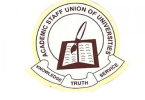The Petroleum and Natural Gas Senior Staff Association of Nigeria (PENGASSAN) has called on Sinopec International Petroleum Company (SIPC), a subsidiary of Sinopec Group to, as a matter of urgency initiate discussions with its employees, who are also members of the union over employment contracts.
This is in reaction to the on-going Global Assets Optimisation Programme of SIPC, involving the selling off total subsidiary business investments of all SIPC’s interests in Addax Petroleum Nigeria (APN) covering OMLs 123/124 and 126/127 and transferral of all assets and liabilities, including the employee to any third part(ies).
In a press statement signed by Comrade Chris Ogiemwonyi Jnr., branch chairman, and Comrade Gerald Agwu, the Secretary, “the Association wishes to put on record that whilst PENGASSAN acknowledges the exclusive right of SIPC to manage and/or dispose of their assets in whatsoever manner so desired, the employment contracts of APN’s Nigerian employees do not form part and parcel of these assets and PENGASSAN will not permit them to be treated as such.”
In a telephone conversation with the branch secretary, he said that the decision of the union stands, especially as it is in line with standard industry practice and labour statutes in Nigeria and the subsisting Collective Bargaining Agreement (CBA) between PENGASSAN and Addax Petroleum Nigeria (APN).
He said the Association understands the right of SIPC to disposing of their assets in whatsoever manner, but the employment contracts of the employees is not part of the assets.
Pengassan, however warned that “the association is constrained to inform the general public and all potential buyers that in the event of a failure by SIPC or her nominated representatives, to open negotiations and close out with PENGASSAN on this and all associated matters, prior to the completion of the divestment of SIPC’s interests in APN, then it shall take whatever measures are necessary to protect the interests of her members including but not limited to, local and international legal action against all parties involved in transaction, as well as the total and complete withdrawal of services of her members, essential services inclusive, across all locations.”
China’s Sinopec Group is a Chinese oil and gas company based in Beijing, China.
In December last year, the company hired BNP Paribas, a French international banking group to sell its oil business in Nigeria and Gabon.
Sinopec and other oil groups including China National Petroleum Corporation and CNOOC made large acquisitions between 2009 and 2013 with the help of low-cost loans from Chinese state-owned banks.
The hunt for overseas assets was intended to bulk up their energy reserves and meet future demand from China, the world’s second-largest economy.
The instability in oil prices and the high rate of militants’ attacked of oil and gas facilities in Nigeria, further discouraging Sinopec, according to the report.
Sinopec spent $7.24 billion in 2009 for Switzerland-based Addax Petroleum, its largest ever-foreign oil acquisition, to secure land in Nigeria, Gabon, Cameroon and Iraq that was licensed for extraction and exploration.
It offered considerable potential as commodity prices rose but bankers expect the Nigeria and Gabon assets to sell for less than $1 billion.
Sinopec spent $7.24 billion in 2009 for Switzerland-based Addax Petroleum, its largest ever-foreign oil acquisition, to secure land in Nigeria, Gabon, Cameroon and Iraq that was licensed for extraction and exploration.
It offered considerable potential as commodity prices rose but bankers expected the Nigeria and Gabon assets to sell for less than $1 billion.
Sinopec’s Cameroon operation would be its only remaining project in Africa, after the sell-off of Addax’s onshore and offshore oil and gas production sites in Nigeria and Gabon.
Sources revealed to Reuters that Sinopec had also decided to sell Addax after a recent bribery investigation by Geneva prosecutors into payments made in Nigeria.
Addax agreed to pay 31 million Swiss francs to settle the bribery charges, for which its executive officer and legal director had also been charged, and shut its offices in Geneva, Houston, and Aberdeen.
At the time, Addax said its parent company was closing the offices in response to low oil prices and did not comment on the investigations at the time, the report said.








Leave a Comment
You must be logged in to post a comment.